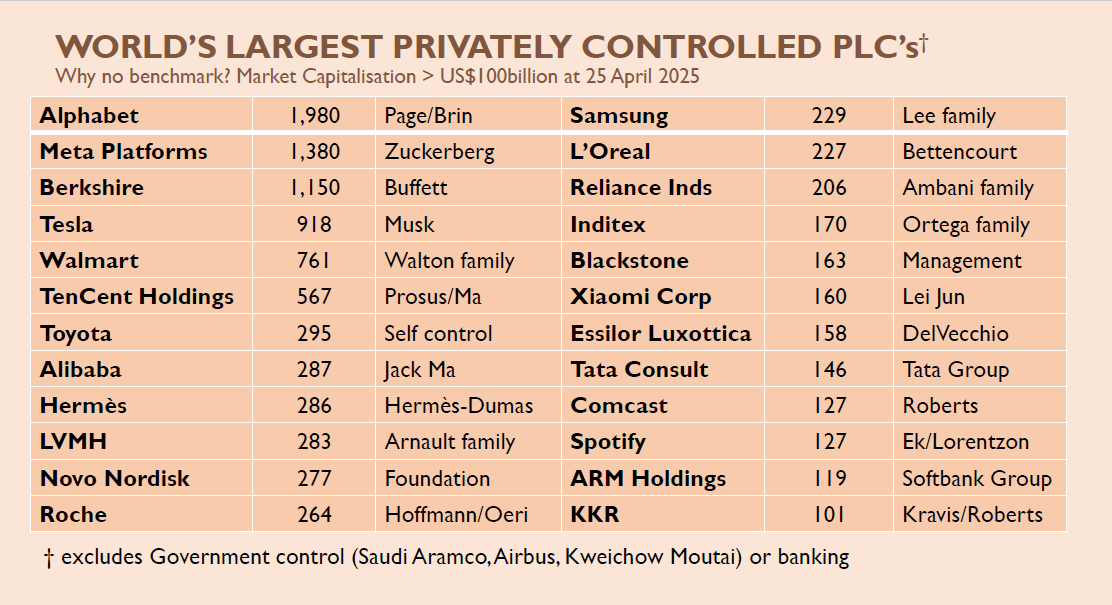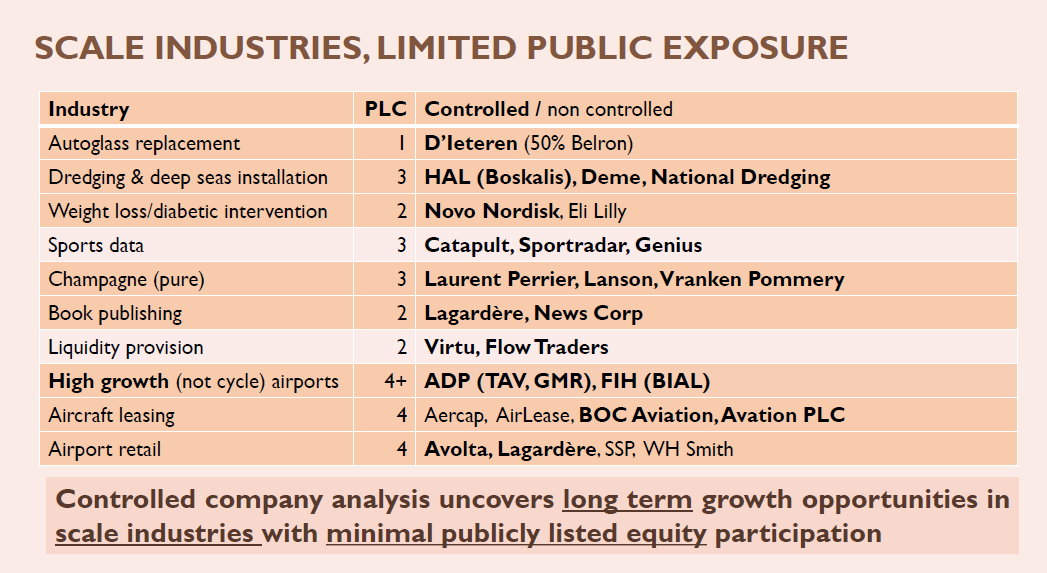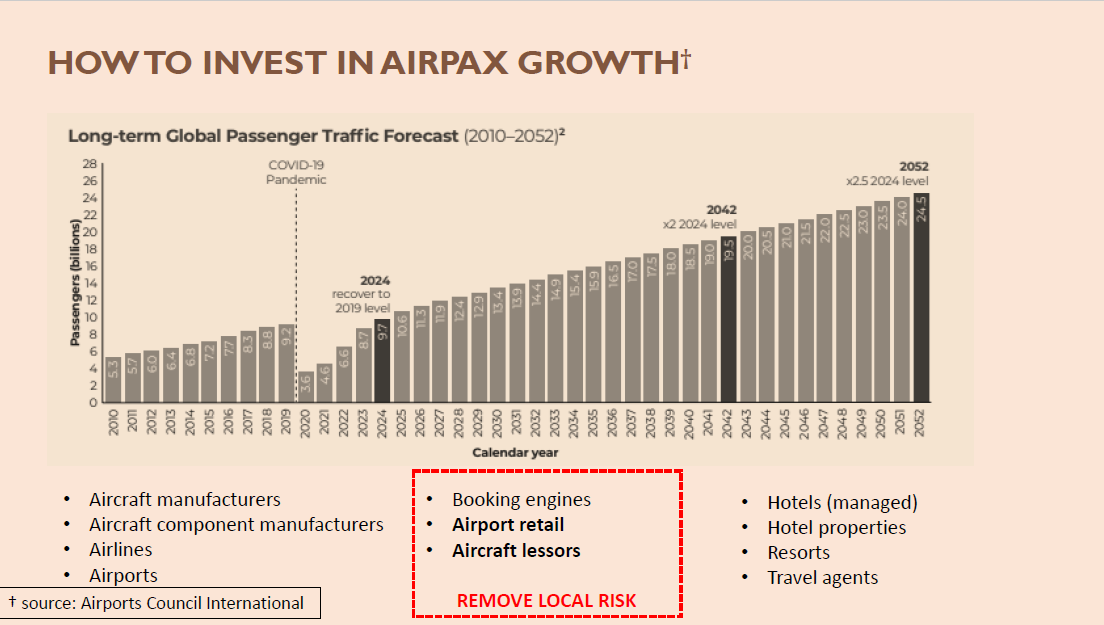Moving beyond founder-led
We have been reading a few articles recently from Australian funds managers regarding the benefits of investing in “founder led or controlled” companies. Not to disparage, but in our view, that is a somewhat one-dimensional tranche of a wider equity space which has enhanced characteristics beyond that of a first-generation founder company.
For the past two and a half years, we have successfully run East 72 Dynasty Trust, a wholesale global long only equity fund investing in “controlled companies” – those listed entities with a ~35% or over shareholder group with common aims, be they family – the most predominant – or corporate, private equity or management.
The backdrop to Dynasty Trust is empirical research, both at an academic level by Harvard Business School or McKinsey, but also work In the 2000 – 2020 period by Credit Suisse and UBS. More recently, National Bank of Canada provides ongoing updates to its 2015 work “The Family Advantage: The Sustainable Outperformance of Canadian Family Controlled Public Companies”. We estimate some 17% of the Toronto Stock Exchange Composite Index is comprised of such enterprises, right across the economy from retail (Loblaw, Alimentation Couche-Tard) IT (Shopify, Thomson Reuters) finance (PowerCorp, GreatWest LifeCo, Brookfield, Fairfax Financial) and mining (Lundin Gold, Lundin Mining).
Outperformance of these types of companies over a full market cycle, illustrated by the research is but one beneficial aspect of constructing a fund around these securities; since managing Dynasty Trust, with portfolio holding constraints of maximum 5% position (minimum 2%) and no hedging, we have observed the far lower volatility of return against wider global benchmarks, whilst noting that we run an absolute return, benchmark-unaware strategy. For example, in the first 119 weeks of the fund’s existence, there were 48 down weeks in the A$ denominated MSCI ACWI (All Country World Index). In only 8 of those weeks did Dynasty Trust decline more than MSCI ACWI. Correlation in downside weeks was a mere R2 of 0.22.

Dynasty Trust holds only two of the world’s largest 24 privately controlled public companies (Novo Nordisk and Christian Dior – a proxy on LVMH) and holds ~34stocks with an average market capitalisation of US$6billion, but average free float of $3billion. These characteristics mean we are happy to accept an obvious capacity ceiling. This construct also provides diversification across industry, geography and capitalisation, which ranges all the way down to an equivalent US$140mn microcap.
Controllers’ long term thinking dictates our perspectives, but there are risks
We view Dynasty Trust as benefitting from two types of discipline: endogenous and exogenous. The internal discipline comes as a result of our portfolio construction of position limits but especially the deep research underpinning our stock selection. Investing in controlled companies despite a strong valuation driven process involves one greater risk than normal: value traps.
A cursory glance at numerous European family controlled holding companies (“holdcos”) bears this out; a selection of these family-controlled entities trades at an average discount to stated NAV above 40%, which escalates further where capital management policies are poor or non-existent and there appear to be overriding non-financial objectives:
|
discount |
discount |
||
|
Cie du Bois Sauvage (*) |
47% |
Kinnevik |
45% |
|
Eurazeo (*) |
46% |
Peugeot Invest (*) |
62% |
|
Exor NV (*) |
53% |
Prosus |
34% |
|
Groupe Bruxelles Lambert |
38% |
Sofina (*) |
23% |
|
Investor AB |
3% |
Wendel |
49% |
|
Italmobiliare |
55% |
AVERAGE |
42% |
NAV at 31 March 2025 except (*) which is 31/12/2024; prices at 31/3/2025. Prosus as at 19 May 2025
In most of these cases, there is little activity by the controlling family to close the discount since the companies are impregnable other than through embarrassment. Ironically, one of the higher discounts – Exor – is the most pro-active at capital management and has an impressive 18.1%pa CAGR of NAV since inception on 1 March 2009.
We can try to negate such traps with research on the families themselves: their past behaviour, the treatment of minorities, public statements, intra-family relationships. This type of work and assessment is a distinct difference to very typical Australian questions of “what’s your exit strategy?”. In many cases, we actually don’t want one! In the case of D’Ieteren, the Belgian company owning 50% of Belron, the world’s largest vehicle glass repair and replacement company (who own Windscreens O’Brien in Australia), the family are into their seventh generation and have recently engineered a sale of stock (funded via a special dividend) from one family line to the other.
D'Ieteren is a classic example of WHY we invest in these companies: they are parsimonious with share issuance. We have some holdings where there are less shares on issue than in 1971 (E-L Financial, a Canadian life insurance holding company). But this exogenous discipline – that of the investee companies themselves – is the real key.
The best run entities have extreme resilience – they want to maintain (the inheritance) rather than explosively grow it with risk. They are conscious of their reputation. M&A is value driven not management consultant led dreamworlds, but that same management is highly remunerated. The best family-controlled companies employ the smartest operators and keep them close to the capital allocators (the board and family) who have a clear vision. The control and capital management structures are often complex (eg Bolloré’s “Breton Pulleys” self-control loop) which deters simple screening investors.
With this type of thinking “surprises” are rare though not non-existent; volatility of return is significantly reduced and so the incentive to churn the portfolio, responding to broken theses is likewise far less. Over time, it should enable us to hold our positions and benefit from compounding.
Discovering global niches with few publicly listed participants
Whilst many investors from Australia in global securities inevitably look for exposure to scale industries unobtainable domestically – IT, pharmaceuticals - within Dynasty Trust – perhaps surprisingly - in many cases, we have found investee companies to have involvement in large industries, where there are few other publicly listed participants. This has been a significant source of return, especially in sports data, liquidity provision and travel retail:

(bold securities are controlled)
In a practical context, our approach to investing in the growth of global airline passengers – through controlled companies – has been to encompass areas which reduce local risk, except where we can see “hyper-growth” airports in emerging airline markets – India, select far East.
We have invested in relatively cheap airport retailers with strong free cash flow which have a number of beneficial angles, as well as extremely cheap (but slightly riskier) aircraft lessors, given the extreme shortage of airplanes.

Double discipline in a time of chaos
We believe the twin benefits of:
· internal portfolio construction and stock valuation discipline;
· long term, often counter-cyclical thinking of controlled investee companies; and
· global market and capitalisation-size diversity
is an ideal counterpoint to the current and emerging chaos in financial markets.
Based on attendance at global conferences and interactions, our understanding is that Dynasty Trust is a unique, highly differentiated global equity investment vehicle, backed by strong empirical evidence.

